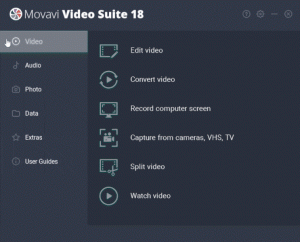Remote work has boomed during the pandemic, and it’s not going anywhere. Many people starting new jobs in the past two years have been onboarded remotely and continue to work in a remote capacity. For now, the days of warm, face-to-face interactions are behind us.
This has been a challenge for a lot of workplaces. According to a consulting firm survey, companies cite remote onboarding as their second-biggest challenge right now, right behind employee burnout. Bringing new hires on board, demonstrating company culture and expectations, and integrating them into the organization in a way that’s mutually satisfying was already a challenge in person. Now that we’re doing it over Zoom, it’s even more difficult.
But it’s not impossible. It doesn’t take much to bond with your new hires remotely — just a few updated strategies and a few small changes in behavior.
Don’t wait until day one
We’re still in the relatively early days of the remote work era, so there are still a few wrinkles to iron out. One common hurdle is technology: Nothing can ruin a big first day at work faster than an embarrassing Zoom fail. Make sure someone on the IT staff touches base with new hires before their start date to walk them through the tech and software you’ll be using during their onboarding.
On a similar note, many companies send new employees care packages before they start, so they can begin their new position on the right note. These kinds of small, personal touches are even more important for remote workers.
Encourage an open, inquisitive atmosphere
Regardless of whether your workplace is fully remote or in person, you should always make it clear that asking questions is welcomed, and that there’s no such thing as a stupid question. But this is doubly important for remote new hires.
Much of a company’s culture is absorbed in the course of normal, day-to-day activities, in everything from meetings to a quick chat at the coffee machine. Those opportunities are gone now that we’re working remotely, so this information has to be transmitted more directly.
If you want to bond with new hires remotely, you should make it clear to them that they should feel free to ask questions about anything from the specifics of their role to small points like breakroom protocols. The next suggestion will help you with this.
Create a workplace “culture bible”
Whether you’re a laid-back brewery, an innovative startup, or a hard-charging fintech outfit, your company culture is the key to your success. But since work culture can’t be shared by in-person interactions anymore, it’s helpful to everyone if you have materials like videos or shared documents that describe your culture’s tone and expectations. These materials can be compiled by HR and a council of senior employees. It’s also a great opportunity to “course correct,” if there are aspects of the company culture you’d like to change.
Remember, since this stuff is intended mainly for new hires, you can’t take anything for granted. Cover everything you can, no matter how small, obvious, or trivial it may seem to you.
Appoint “culture ambassadors”
It can be intimidating for a new hire to have to ask their manager about things like video etiquette, work hours, dress code, and cultural expectations. To keep lines of communication open, designate certain senior employees as “workplace culture ambassadors,” so new hires have someone to go to without worrying about the hierarchy.
Be extra observant
So much of person-to-person bonding takes place through subtleties and unspoken mediums — body language, intonation, eye contact. It’s tougher to pick up on these important cues when you’re communicating virtually, but it’s not impossible. It will take a little extra effort on your part, though.
When you’re interacting remotely, pay extra close attention to your new hires’ body language, their posture, their tone of voice. If you sense even a touch of frustration, don’t hesitate to address it. On the other hand, if you find yourself sharing a moment of common interest or empathy, don’t let it pass unremarked; make sure that it’s acknowledged and shared. This may feel slightly awkward at first, but it’s a necessary adaptation.
Extend your close observation to other mediums, too. Look closely at the tone of team messages and written communications, so you can stay connected to how your new hires are feeling about their roles.
Approach relationships with intention
Since remote workplaces lose the opportunity for spontaneous interaction, you’ll have to shift gears to intentional interaction.
That means arranging one-on-one video chats between employees so they can get comfortable with each other. These don’t have to be long and in depth, or even particularly formal — you just want employees to have a little face time with each other, so they feel they’re part of the organization.
One of the upsides of the remote work era is that video chats are much easier to arrange than face-to-face ones, so the possibilities here are actually quite robust.
Lay out a clear road map for success
In keeping with most of the other tips on this list, this one is about fostering clarity. In a time rife with uncertainty for workers, well-defined goals are as critical as ever.
Make sure your new hires have a detailed road map of their first several months. Let them know exactly what you need and expect from them. Ambiguity hurts both the company and the new hire, as they’ll have to endure the stress of fumbling through their first stretch.
One way to illustrate what you expect is to let your new hires sit in on important meetings, even if the substance of those meetings doesn’t necessarily overlap with their role. This can be a great way to let them soak up company culture and see how coworkers handle themselves. It’ll also give them a sense of where they fit in the larger company ecosystem, and they’ll get to know the people who will be depending on their contributions.
As we touched on above, all of these suggestions boil down to some very basic principles: fostering trust, clarity, and communication. These have always been important to the functioning of a workplace, but remote work has made them indispensable.
Business & Finance Articles on Business 2 Community(31)








